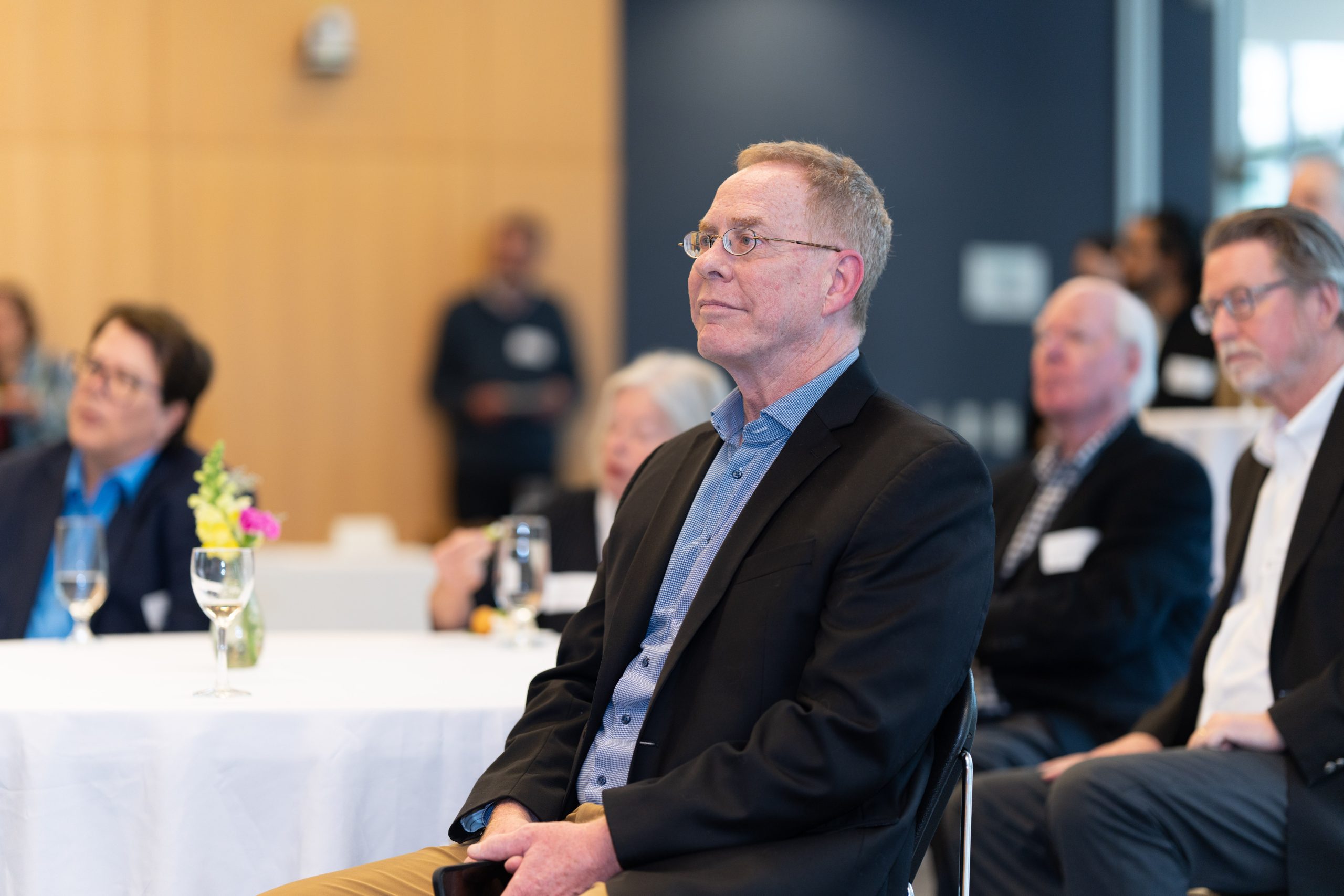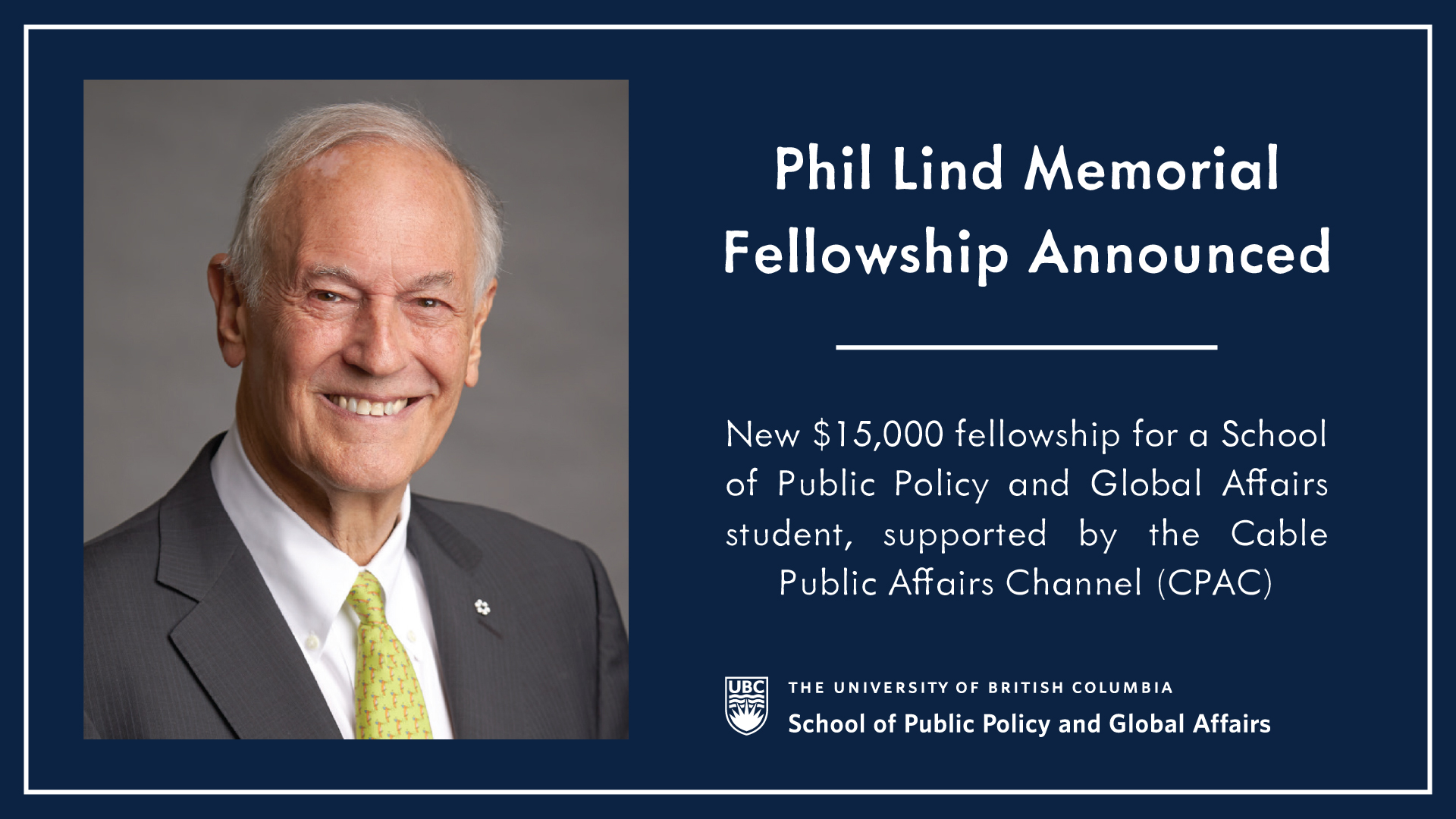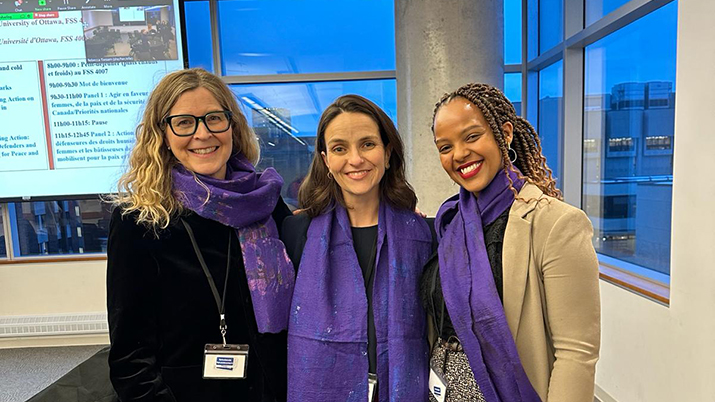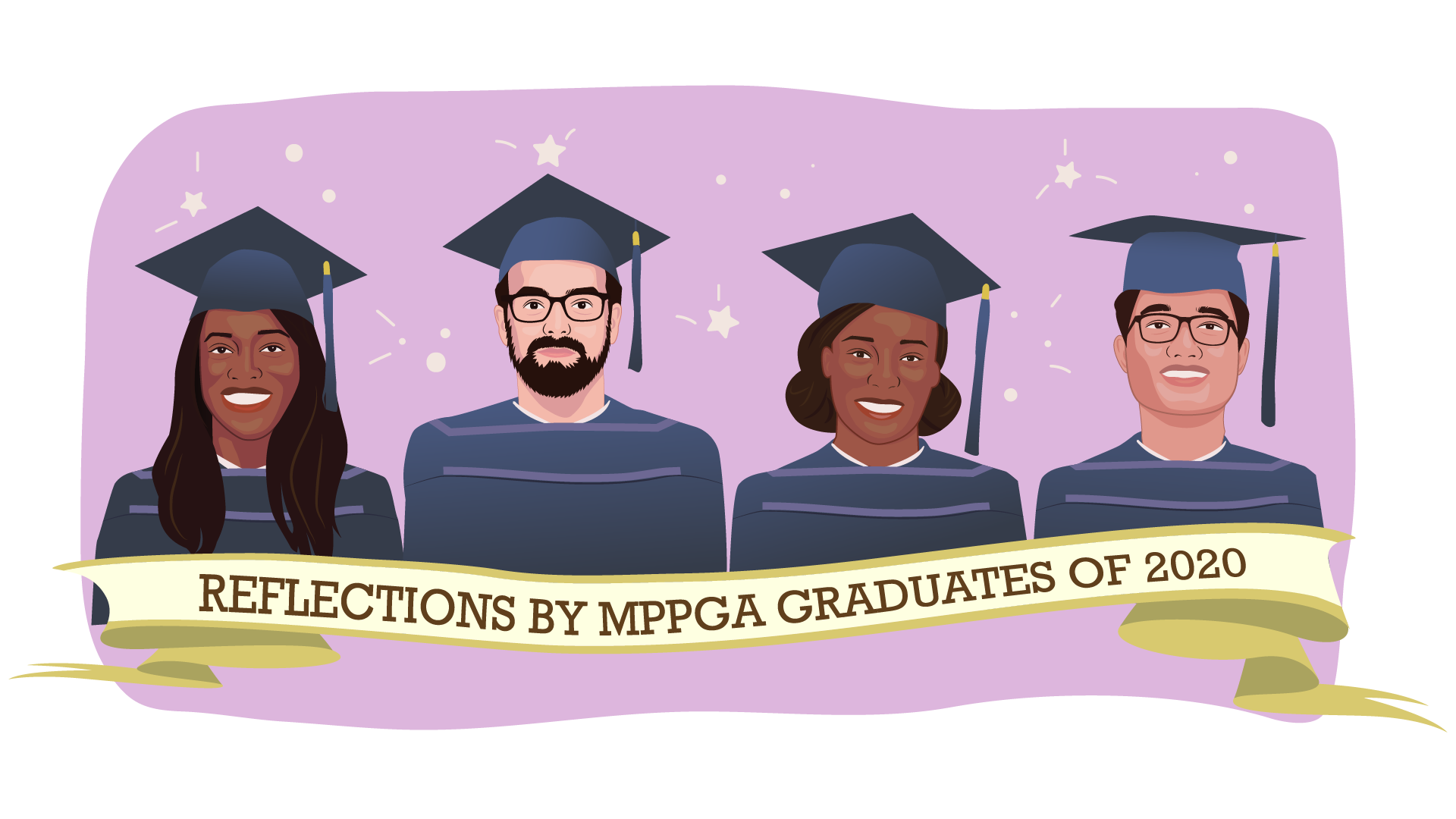

Beyond the classroom, our students learned how to evaluate and articulate policy recommendations in case competitions as well as sharpen their interviewing and networking skills at career development workshops and the MPPGA Co-op Conference: Job Search Skills for the Policy Professions.
To celebrate our graduating class and to shed some light on the program’s unique experiential and professional approach, we spoke to four students who shared their most memorable experiences in the MPPGA program, their policy career aspirations and their plans for after graduation, as well as their advice for our current and future students.
View their profiles on the Graduate Students section of our website.


What local and/or global issues are you most passionate about? Connected to this, how has the MPPGA program helped you gain the skills and knowledge to address these issues?
I am interested in Digital Rights and Internet Freedoms as it is an area that brings together the intersecting issues I am passionate about - good governance, technology, the Internet, human rights and gender. Since joining the program, I have had the opportunity to explore these and other areas of interest through my schoolwork, research project and work experience.
The Global Policy Project was an exciting learning experience that provided the opportunity for me to further explore the topic of sexual violence. Through this project, my teammates and I interviewed and connected with representatives of United Nations agencies, the International Criminal Court, civil society, academics and other international institutions. This was a highlight, for me, of the program.
In addition, during the program, I have been able to carry out more research using a variety of methods, especially improving on my quantitative research skills. I also had the opportunity to work with other UBC departments as Project Coordinator and Graduate Research Assistant on digital literacy and human rights projects. The MPPGA program hosts and provides students with the opportunity to attend great events through which we learn, meet policy professionals and hear about their diverse experience. I had the privilege of attending a number of these, making connections with professors, policy professionals and other students with intersecting interests.
What is your most memorable moment in the MPPGA program?
My most memorable experience in the program was the Global Policy Project. I had the opportunity to work with Professor Erin Baines and the Women’s Initiatives for Gender Justice on an issue I am passionate about. The opportunity to travel to New York, The Hague and Geneva, attend the Assembly of State Parties and visit various UN agencies was remarkable. I was able to form strong working relationships with some of my teammates which will continue beyond the program and lead to great collaborations.
What are your career aspirations and next steps post-graduation?
As a Nigerian, I remain interested in working on human rights, technology, gender, and good governance issues and policies in the country but hope to expand to regional and international levels. Although graduating amidst the COVID-19 pandemic has impacted my plans and next steps, it has also provided me the time to learn new skills and improve on some existing ones. I am currently developing and working on a number of creative and professional projects that I am excited about but are still in the works.
What advice do you have for our current and future MPPGA students?
Explore the various opportunities the program and studying at UBC provides. Do not be afraid to try out new areas of interest as they might surprise you. Reach out to professors, and the MPPGA team as they are always willing to help.
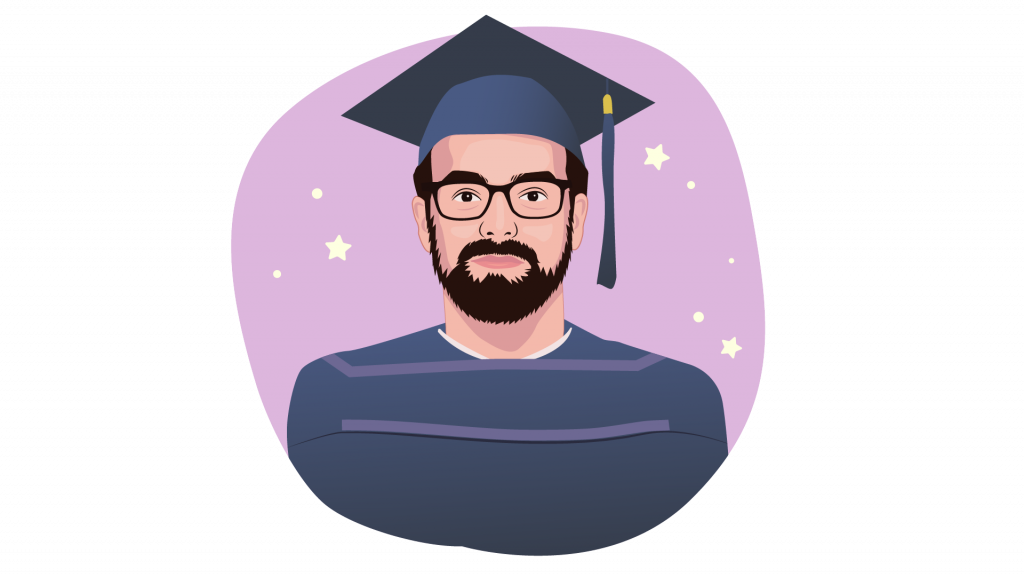

What local or global issues are you most passionate about? Connected to this how has the MPPGA program helped you gain skills and knowledge to address these issues?
I have many political, policy and social issues I am interested in, but what underlies all of them is this theme of knowledge production. Locally, the issues I am most passionate about are local community resiliency, labour rights/advocacy, municipal governance, and housing policy. Globally, I am passionate about digital governance, human & civil rights and sustainable natural resource management. Yet I am also very interested in arts and cultural policy, the future of work, Canadian labour markets, and equitable and sustainable economic systems.
The MPPGA program has helped me gain the right tools and knowledge to address this issue through exposure to a network of policy researchers, and professionals both on and off campus, through multiple experiential learning opportunities where theory was put to practice, and through policy-related working opportunities fostered by the program. Without having gone through program, I probably would still not have a good idea about what are some of the best processes or practices to follow when conducting policy analysis in order to fully understanding any of these issues, nor how important structured decision making is in an uncertain decision environment, and how important it is to narrowing down the underlying and root problems.
What is your most memorable moment in the MPPGA program?
It would definitely have to be all the moments from the Global Policy Project (GP2) fieldwork in Lima and Arequipa, Peru. From the down time we had to explore the cuisine, the culture and history of the cities we were in, to doing the actual work where we gained valuable insight not found in any textbook on the issue of water governance and gender. Having the opportunity to actually conduct policy analysis on a reasonably sized pubic policy project was an absolutely amazing experience. Spending 17 days in Peru, interviewing government officials, holding focus groups with citizens and conducting a survey amongst our clients workforce, was a once-in-a-lifetime educational experience that appears to be wholly unique to UBC, at this point in time.
What are your career aspirations and next steps post-graduation?
Well, since the completion of the program I have taken some much needed time off but I have also been applying for jobs and am still involved in our Student Association as the President. I plan to continue in this role for the next little bit. I think many of my career aspirations are non-linear and not necessarily like many others who go into public policy as I have other aspirations not necessarily associated with policy analysis. I chose the stream “social change,” because I believe the majority of my actions have driven me to seek larger, societal and systemic change which is anything but straight forward in many regards. I am leaning towards working in the public sector in the short term, but could see myself starting my own consultation company in the future. I think I would most like to work at the municipal level in a department or that dealt with governance issues, housing, poverty reduction, or economic equity, but would not pass up opportunities at the provincial level if they fell in-line with some of my other policy interests. This is equally the same for the non-profit and private sector. If my values aligned with an organizations in what they were working towards, I would gladly accept an opportunity outside of the public sector. For now I am keeping my options open.
What advice do you have for our current and future MPPGA students?
Network as much as you can while you are at UBC with professors, their contacts and other students in other faculties. You never know what opportunities could arise for work, research or other projects. Additionally start thinking about what job sector you would like to work in and start looking up qualifications for them so you can have a head start on what programs, or knowledge you will need. Also remember, a lot of the software required by planners or planning analysts in the City of Vancouver, or even at the provincial level is free, or given at a reduced payment rate for students (i.e. ArcGIS, Adobe Suite, etc). So take the time to learn some of the software that is freely available to you as a student. Also, take advantage of all the resources given to you at UBC and in the program. I cannot stress this enough. There is so much support in so many different areas and as a student staff and professors are always willing to help. This also applies to holding informational interviews with prospective employers. Start reaching out now and keep doing it throughout the program. In order to maximize your experience and advance your career aspiration in public policy, spend additional time educating yourself in other areas, attending workshops, panels, and taking the initiative inside and outside of the program!


Coming into the MPPGA program, I was primarily interested in HIV/AIDS. However, my background is in political science and my understanding of public policy and health was limited. The MPPGA program opened my eyes to the limitlessness of the policy world. Through classroom debates, the mentor program and professional development opportunities such as my summer internship, I was able to not only strengthen my knowledge of public policy as it pertains to health but also to understand how I could create a niche for myself in the health policy world using my background, experiences and strengths. In 20 years, I hope to open an HIV/AIDS and mental health clinic. I have no doubt that the skills and knowledge I acquired from the MPPGA program will help me in the process of materializing this dream.
What is your most memorable moment in the MPPGA program?
My most memorable day in the MPPGA program was the Squamish trip at the beginning of First Year. I remember standing in the forest, looking for the scavenger hunt clues, overwhelmed with anxiety and imposter syndrome thinking “everyone here is probably so much smarter than me”. Much later, when I began focusing on my goals and myself instead of worrying about what I could not control, I came to realize that I was just as capable as everybody else.
What are your career aspirations and next steps post-graduation?
I aspire to keep working in the policy world. I am particularly interested in health policy so I hope that in the years to come, I can continue exploring its possibilities and contribute to making a healthier world. What advice do you have for our current and future MPPGA students? Do not let fears, failures or negative emotions and experiences intimidate you. In the moments where success – however you may choose to define it – seems most impossible, unachievable or even unimaginable, it is important to not stop believing in yourself and to always remain positive and persevere.
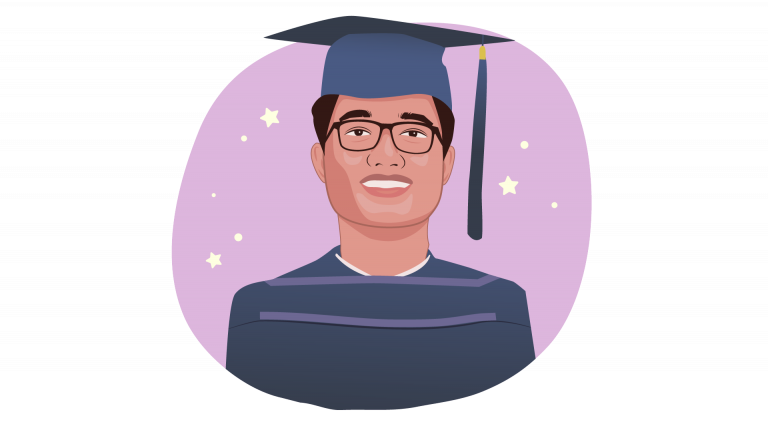

I came to UBC with a passion to strengthen my policy analysis skills in the realm of decentralization and inequality as well as behavioural-based policy. While there is no specific course that discusses those issues (except for the Behavioural Foundation of Public Policy which I took the last term), the MPPGA program provided several courses that deal with that issues indirectly or courses that help hone necessary skills needed to tackle the issues. Interestingly, as time goes by, being in Vancouver and studying at UBC has made me increasingly interested in environmental policy. I can already see several environmental-based policies that my country (Indonesia) can apply in the future.
What is your most memorable moment in the MPPGA program?
Going on exchange to Berlin and our Global Policy Project (with the City of Vancouver) are the two biggest highlights of my studies here at MPPGA. I gained a lot of experience and skills on both occasions.
What are your career aspirations and next steps post-graduation?
I will return to my previous job working as a civil servant in the Indonesian Ministry of Finance. I would love to work in the Policy Formulation and Evaluation in my organization or to work in the HR department to see if there is a behavioural nudge that can be applied to both our organizations internally as well as our external stakeholders.
What advice do you have for our current and future MPPGA students?
Being flexible and open-minded! We all have something that we are passionate about, but I suggest trying to be more open and flexible towards every opportunity. There are so many interesting things out there!
Congratulations to our 2020 MPPGA Graduating Cohort!
